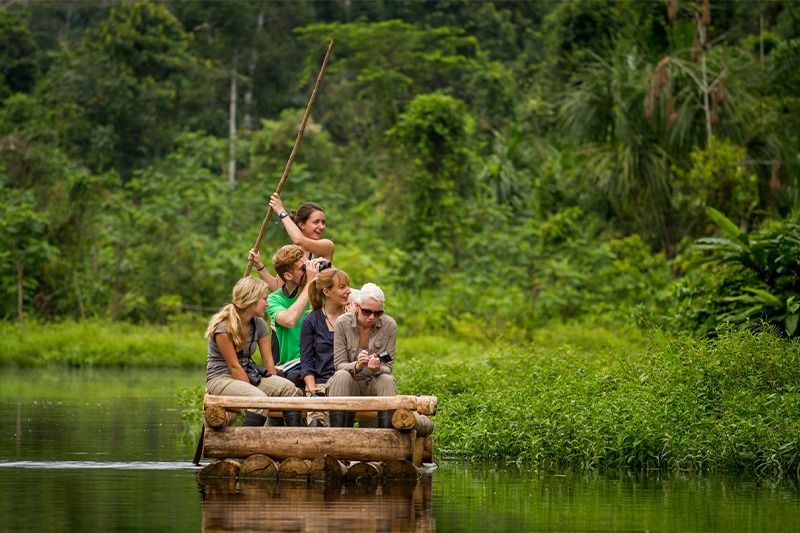Tropical rainforests are some of the most diverse and fragile ecosystems on our planet. These lush forests are home to millions of species of plants, animals, and insects, many of which are found nowhere else on Earth. Unfortunately, these vital ecosystems are under constant threat from deforestation, illegal logging, and climate change.
Preserving Biodiversity
One of the key benefits of eco-tourism in tropical rainforests is its ability to support conservation efforts and preserve biodiversity. By attracting visitors to these unique habitats, eco-tourism helps to raise awareness about the importance of protecting these ecosystems and the plants and animals that call them home.
When done responsibly, eco-tourism can provide a sustainable source of income for local communities living in and around tropical rainforests. This can incentivize these communities to protect the forest rather than exploit its resources for short-term gain.
Supporting Sustainable Development
Another important aspect of eco-tourism in tropical rainforests is its potential to support sustainable development in the region. By providing jobs and income for local communities, eco-tourism can help reduce poverty and improve the quality of life for those living in and around these important ecosystems.
Additionally, eco-tourism can help promote the value of traditional knowledge and practices that have been passed down through generations. By showcasing the rich cultural heritage of indigenous communities, eco-tourism can help preserve these traditions and support cultural sustainability.
Protecting the Environment
One of the most significant benefits of eco-tourism in tropical rainforests is its potential to protect the environment and combat climate change. By promoting sustainable practices such as low-impact tourism, waste reduction, and conservation efforts, eco-tourism can help reduce the negative impact of human activities on these fragile ecosystems.
Additionally, eco-tourism can help raise awareness about the importance of preserving forests as carbon sinks. Tropical rainforests are some of the most effective natural carbon storage systems on earth, helping to mitigate the effects of climate change by absorbing and storing carbon dioxide from the atmosphere.
Conclusion
Eco-tourism in tropical rainforests plays a crucial role in promoting conservation, supporting sustainable development, and protecting the environment. By raising awareness about the importance of these vital ecosystems and providing economic incentives for their preservation, eco-tourism can help ensure that these unique habitats and the biodiversity they support are preserved for future generations to enjoy.
When done responsibly and with a focus on sustainability, eco-tourism can be a powerful tool for protecting tropical rainforests and the plant and animal species that inhabit them. By choosing eco-friendly travel options and supporting conservation efforts in these important ecosystems, we can all play a role in preserving the natural beauty and biodiversity of tropical rainforests for years to come.
